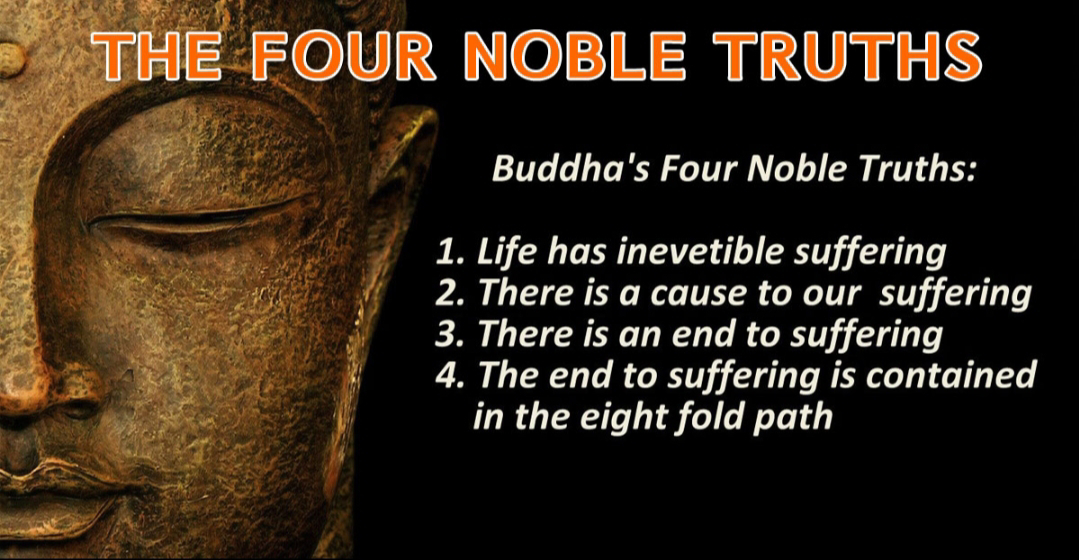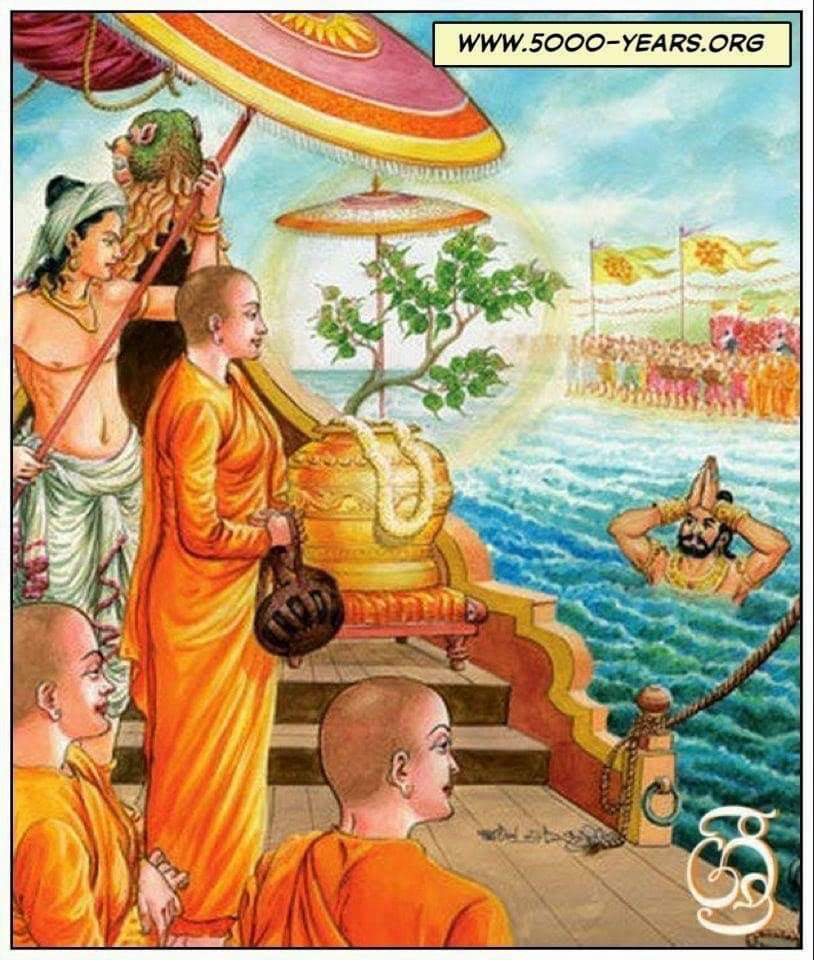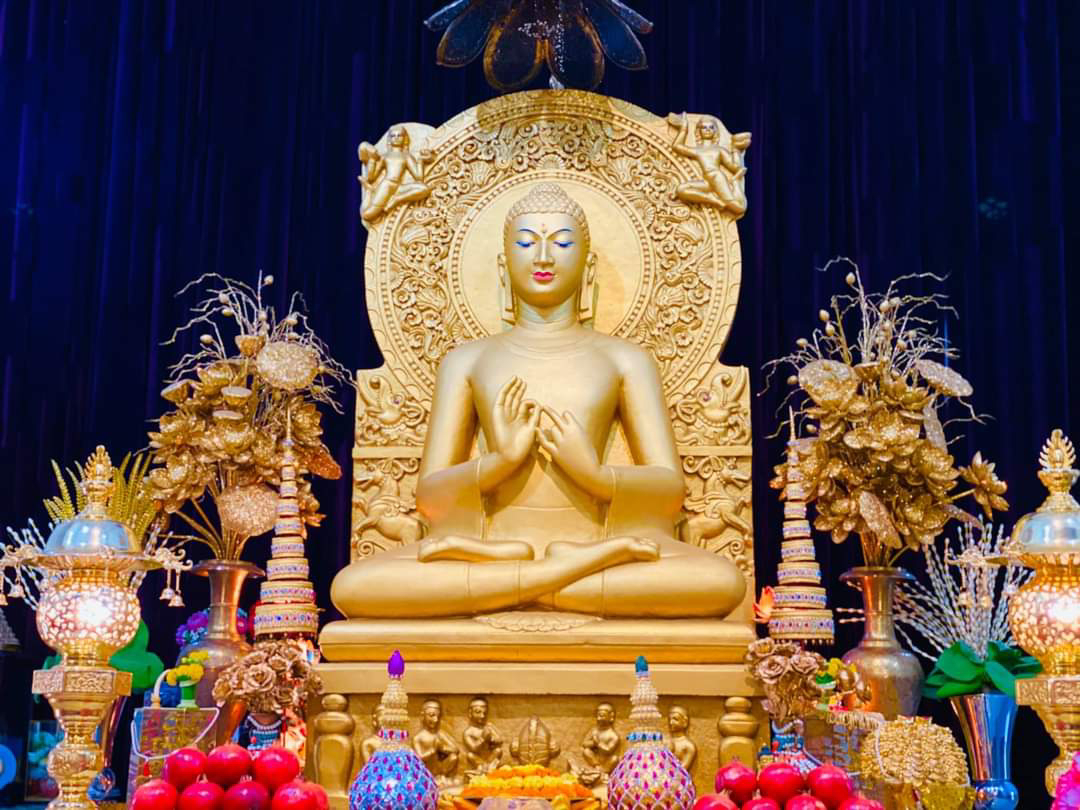The Four Noble.
The Four Noble Truths are
1. The Noble Truth of the reality of Dukkha as part of conditioned existence. Dukkha is a multi-faceted word. Its literal meaning is "that which is difficult to bear". It can mean suffering, stress, pain, anguish, affliction or unsatisfactoriness. Each of the English words is either too strong or too weak in their meaning to be a universally successful translation. Dukkha can be gross or very subtle. From extreme physical and mental pain and torment to subtle inner conflicts and existential malaise.
2. The Noble Truth that Dukkha has a causal arising. This cause is defined as grasping and clinging or aversion. On one hand it is trying to control anything and everything by grabbing onto or trying to pin them down, On the other hand it is control by pushing away or pushing down and running away or flinching away from things. It is the process of identification through which we try to make internal and external things and experiences into "me and mine" or wholly '"other" than Me. This flies in the face of the three signs of existence - Anicca, Dukkha. Anatta - Impermanence. Stress or Suffering and No-Self. Because all conditioned existence is impermanent it gives rise to Dukkha, and this means that in conditioned existence there is no unchanging and permanent Self. There is nothing to grasp onto and also in reality, nothing or no 'one' to do the grasping! We grab onto or try to push away ever changing dynamic processes. These attempts to control, limit us to little definitions of who we are.
3. The Noble Truth of the end of Dukkha, which is Nirvana or Nibbana. Beyond grasping and control and conditional existence is Nirvana. "The mind like fire unbound." The realisation of Nirvana is supreme Bodhi or Awakening. It is waking up to the true nature of reality. It is waking up to our true nature. Buddha Nature. The Pali Canon of Theravada, the foundational Buddhist teachings, says little about Nirvana, using terms like the Unconditioned the Deathless, and the Unborn. Mahayana teachings speak more about the qualities of Nirvana and use terms like, True Nature, Original Mind, Infinite light and Infinite life. Beyond space and time. Nirvana defies definition.
Nirvana literally means "unbound' as in "Mind like fire unbound". This beautiful image is of a flame burning by itself. Just the flame, not something burning and giving off a flame. Picture a flame burning on a wick or stick, it seems to hover around or just above the thing burning. The flame seems to be independent of the thing burning but it clings to the stick and is bound to it. This sense of the flame being unbound has often been misunderstood to mean the flame is extinguished or blown out. This is completely opposite to the meaning of the symbol. The flame "burns" and gives light but is no longer bound to any combustible material. The flame is not blown out - the clinging and the clung to is extinguished. The flame of our true nature, which is awakening, burns independently. Ultimately Nirvana is beyond conception and intellectual understanding. Full understanding only comes through direct experience of this "state' which is beyond the limitations and definitions of space and time.
4. The Noble Truth of the Path that leads to Awakening. The path is a paradox. It is a conditioned thing that is said to help you to the unconditioned. Awakening is not "made" by anything: it is not a product of anything including the Buddha's teachings. Awakening, your true nature is already always present. We are just not awake to this reality. Clinging to limitation, and attempts to control the ceaseless flow of phenomena and process obscures our true nature.




Comments
Post a Comment